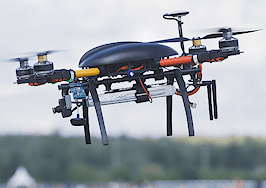- Great images on your listings can have a huge impact on the time it takes to sell a home and what it sells for.
- If there's one thing you can do today to improve your images, utilize lighting better.
- You don't need to have an expensive camera to take great pictures, but you do need to know what you are doing.
You’ve got a gorgeous, high-priced home to sell. Do you have gorgeous pictures to go with it?
If you don’t, it won’t matter how unique your home is — or how much character it has — no one will know, and your phone won’t ring.
A professional photographer knows how to take shots that can truly capture the details of a home.
However, if hiring a photographer simply isn’t in your budget, you can still take great pictures with your phone.
Use these tips to take professional-level photos.
Improve your lighting
If you can only do one thing today to drastically improve your phone pictures, improve the lighting.
Adequate lighting can change the atmosphere of a photo and the look of a home dramatically, even when an image is only a few shades brighter.
Choose the time of day carefully and take multiple shots.
In addition:
- Turn off your flash. Flashes on phones are simple LED lights and barely powerful enough to illuminate farther than 10 feet. With only the first few feet lit, your camera won’t focus on anything in the distance, making large, open rooms seem small.
- Don’t shoot directly at bright windows. Similar to the flash effect, bright windows can affect your phone’s auto-focus, causing it to make dark corners even darker.
- Use additional lighting if necessary. Turn on lights in the rooms and, if you have it, bring in light stands to help brighten up dark areas and balance out the light.
Know your angles
Did you know that, of all the posted information on a listing, internet shoppers are spending 60 percent of their time looking at the pictures alone?
It’s not just because they are pretty. They are trying to get an idea of the look and layout of the home to see if it matches their tastes and needs. It’s critical to choose your angles carefully to accurately represent the space.
[Tweet “Use these tips to take professional-level photos with your phone.”]
Do a walkthrough of the home before taking any pictures and devise a strategy to show as much of the house as possible. Take note of any long hallways or open spaces that should have their depth prominently displayed.
If you need to show some smaller spaces, take shots from corners to get as much of the room as possible. The most important thing is to allow potential buyers to “walk” through the space.
Apply after effects
After effects, or post-processing, can help you take your pictures from good to great.
Touching up your shots afterwards can make colors pop, even out the lighting and sharpen the details.
Don’t panic — you don’t need to be an expert in Photoshop to do this. There are dozens of apps built specifically to help you clean up your images, and many of them are very easy to use.
Some spectacular apps I recommend are Camera+ or Snapseed.
Invest in some accessories
If you really want to take your home-brewed photography to the next level, you don’t have to buy a $1,000-plus camera just to take a few shots.
Consider purchasing some photography accessories for your phone. Some enterprising companies have designed lenses that clip onto your phone and high-powered flashes that are far superior to your phone’s stock LED light.
These can save you hundreds, if not thousands, of dollars while allowing you to improve your photographs significantly.
Look into getting a wide-angle lens to capture more of each room, a tripod to stabilize your phone (which will allow you to take HD shots without the blur) and a high-powered flash for those instances where you really need it.
Quality photos can have a huge impact by attracting more calls from prospective buyers or selling the home for more than you expected.
If you can’t hire a professional photographer, take the best photos you can. You’ll be glad you did.
Max Mikhaylenko, the owner Variable Visuals, provides advertising photography services with a focus on architecture and commercial portraits. He’s based in Portland, Oregon, and Vancouver, Washington.







